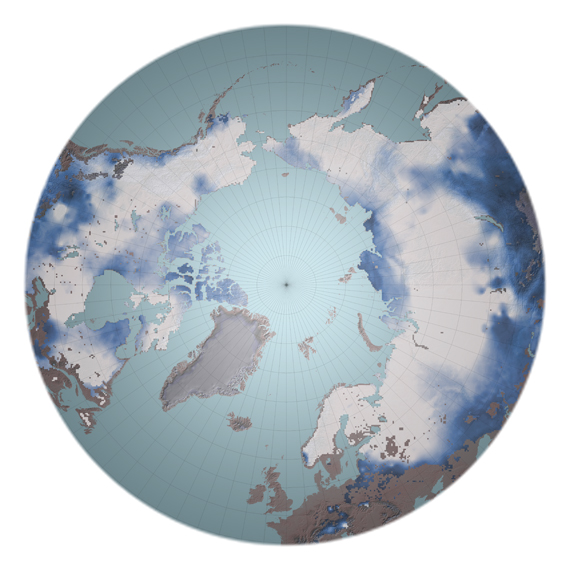Meteorology’s role in Arctic cooperation confirmed in Levi

"What happens in the Arctic does not stay in the Arctic."
This statement was heard in a number of speeches during the "Arctic Met week" held in Levi in March. Experts from many different sectors and from important FMI stakeholder groups participated in the Arctic Meteorology Summit run by FMI and in the meetings of the working groups and Senior Arctic Officials coordinated by the Finnish Ministry for Foreign Affairs.
"The effects of climate change will be seen in society on a broad scale, so research information and services will be needed in many sectors. The Arctic Meteorology Summit's most important contribution has been the dialogue generated between climate experts, decision-makers, business and industry, security officials and native peoples", stated Director-General of the Finnish Meteorological Institute Juhani Damski after the summit.
The summit was the main meteorological event for Finland's chairmanship of the Arctic Council.
Meteorology to become a more integrated part of the Arctic Council's work
The World Meteorological Organisation received observer status in the Arctic Council just under a year ago when Finland took over the Council's chairmanship from the US. At the summit in Levi, there was discussion about integrating meteorological cooperation into the work of the Arctic Council. The discussions covered questions of what kind of environmental data is needed for the Arctic region and what kind of data the meteorological community can offer to those operating in the region.
"The most fundamental objective for Finland's chairmanship is that meteorology would be recorded in the public statement to be issued at the end of the chairmanship term, and thus meteorology would become an integral part of the Arctic Council's work. This goal has nearly been achieved already", says Project Manager Johanna Ekman from the Finnish Meteorological Institute.
All the stakeholder groups present at the summit, from researchers and observation data gatherers to final users, were of the opinion that meteorology is a key area of Arctic activity that should be advanced together. In the Arctic Council's Senior Arctic Officials meeting, held after the summit, the initiative to establish meteorology as a permanent part of the Council's activities was held to be very much needed, and thus the matter received formal approval.
Ekman explains that the Arctic Council's actual research and reporting work is carried out through its permanent working groups. There are six permanent working groups, and various temporary groups can be established to support them. Meteorological experts now have access to all the permanent working groups.
"After the summit, we will attend the meetings of the different working groups to discuss in what ways people would like meteorology to be included in the work of the Arctic Council. We will find out which matters the working groups would like more information about: climate change modelling, the atmosphere, oceanography, development of tailored services or something else. The meteorological community has a lot to offer", Ekman emphasises.
Climatic uncertainty is increasing
The past winter saw unusually high levels of snowfall in the northern hemisphere. This was nevertheless an exception: over the long term, it can be seen that total snowfall in the northern hemisphere has decreased and the snow has been melting earlier.
The Arctic region is warming around twice as fast as the rest of the world. The direct consequence of this is that the cold weather fronts that come down from the Arctic are no longer as cold as they used to be. On the other hand, the atmosphere is more prone to different kinds of disturbances because of the warming climate, and these can also cause very cold winter weather. Climatic uncertainty is increasing, and the only thing certain about future climatic conditions is that variable weather, extreme weather phenomena and the resulting natural disasters are something we will need to get used to.
At the Arctic Meteorology Summit, a joint statement composed by the international research community was published and there was close examination of climate change in Arctic areas, environmental and atmospheric observations and the region's meteorological challenges. According to the research community, climate change in Arctic areas already affects us all.
Researchers stressed the importance of scientific data, communication and cooperation in countering climate change. They particularly stressed the need to develop a comprehensive observation system for obtaining data on current conditions and ongoing developments in the Arctic region.
Tackling the challenges also requires close cooperation between researchers and service providers. A practical example of cooperation that is already under way is the Arctic Now online service, which provides close to real-time data on ice and snow conditions in the planet's northern regions. The service's ice data comes from the OSI SAF project, which is funded by the European Organisation for the Exploitation of Meteorological Satellites (EUMETSAT) and operated by Norway. The Finnish Meteorological Institute provides the data on snow cover.
This text was originally published in Finnish at FMI's Atmos online magazine
